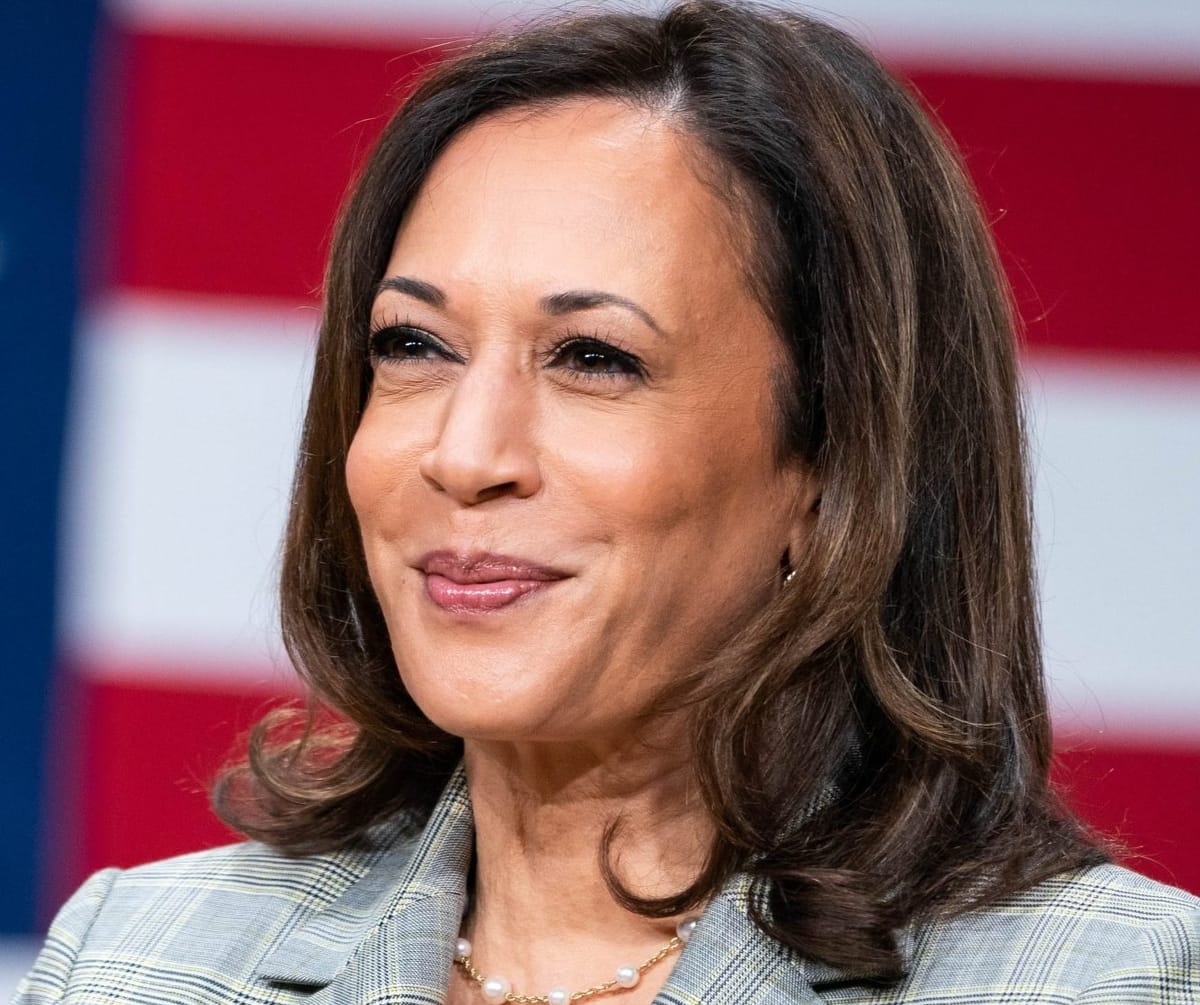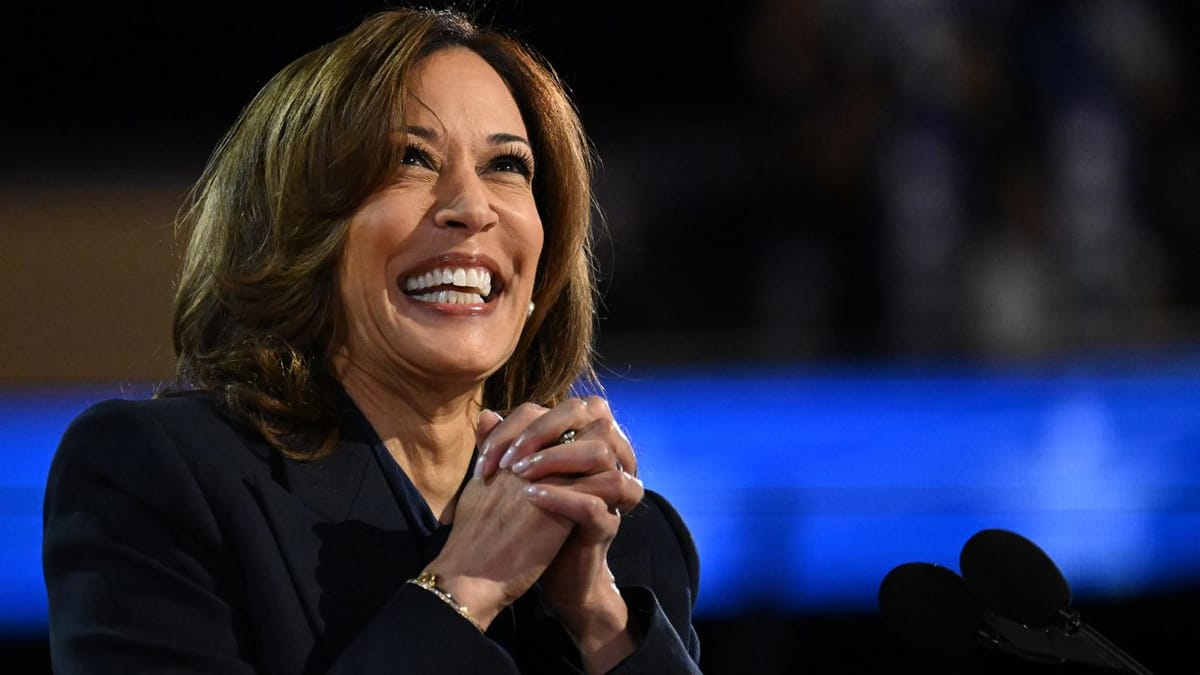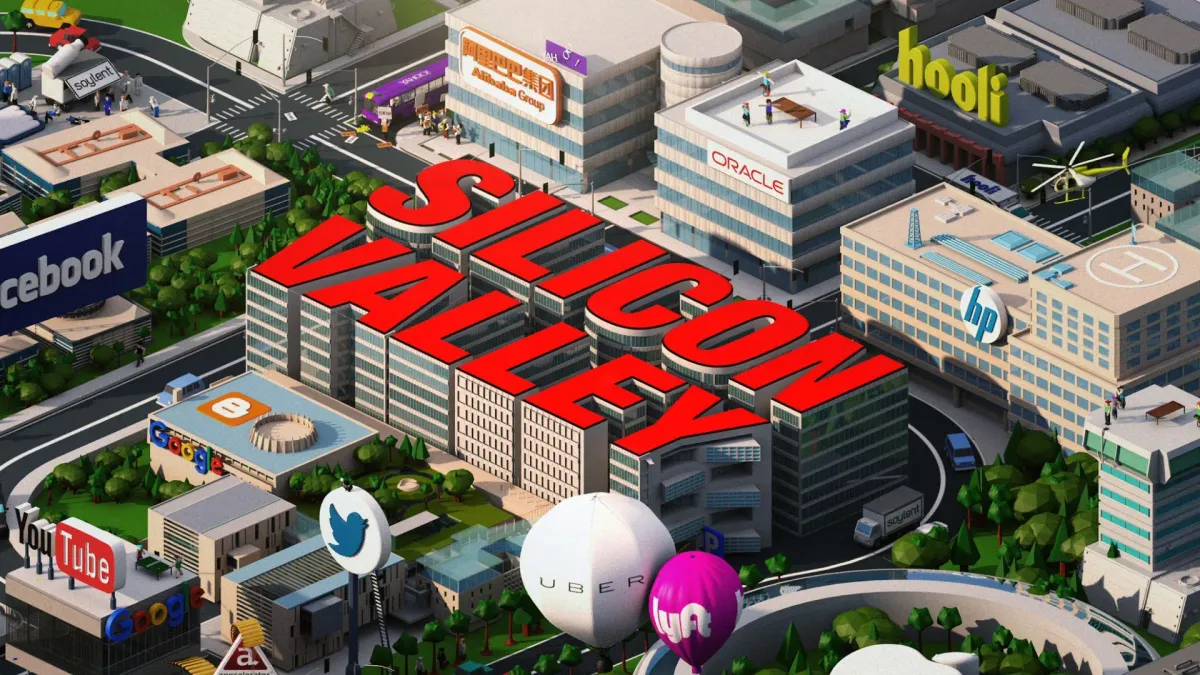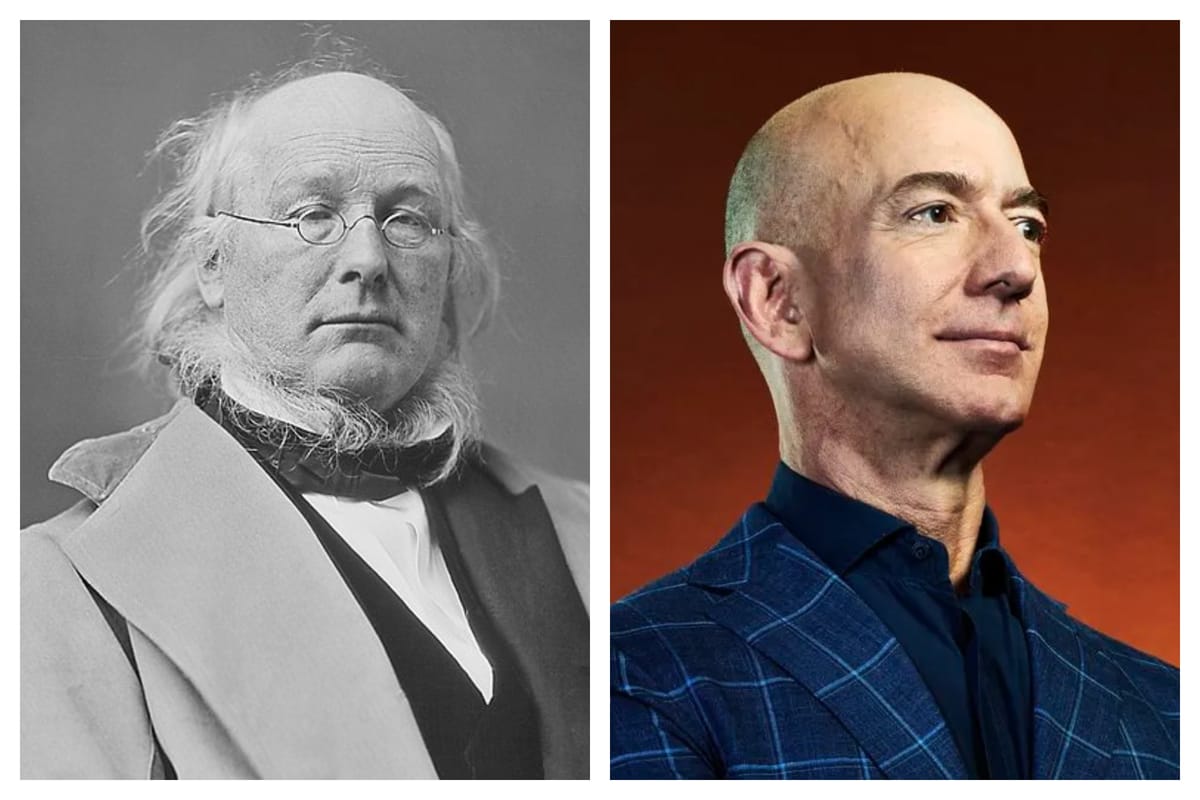Broadband Breakfast Endorses Kamala Harris for President
This tech-focused publication and broadband community says Harris-Walz is ‘better for broadband’ and ‘better for people’s lives’ than the alternative.

The views expressed in this Editorial are those of Breakfast Media LLC’s owner, and not of any particular reporter or editor. See the sections below – “Who we are,” “Why are we doing this?” and “What should you do?” – regarding Broadband Breakfast’s first editorial endorsement.
If you want better broadband, this election is no contest: As President, Kamala Harris will achieve a far better result than Donald Trump.
We can say this confidently because as vice president, she already has done far more for broadband infrastructure, for semiconductor independence and for advanced energy than anyone else on the ballot. Trump, in his term as president, failed to accomplish his core promises on building infrastructure.
As an issue, broadband has achieved a relevance and a direction that it lacked prior to the administration of President Joe Biden and Vice President Harris. The passage of the bipartisan Infrastructure Investment and Jobs Act of November 2021 – championed by Biden and Harris – is only the most significant of these measures.
By devoting attention and funding ($65 billion) to solving America’s connectivity conundrum, the Biden-Harris Administration elevated the problem. It has put us on a track for better broadband and better lives.
The IIJA created three core and innovative programs devoted to addressing the digital divide: The Broadband Equity, Access and Employment program; the Affordable Connectivity Program; and Digital Equity grant programs. BEAD and the Digital Equity programs are being implemented by the Commerce Department’s National Telecommunications and Information Administration, and are well under way. The Federal Communications Commission’s ACP has unfortunately come to an end. But these programs are by no means all that the administration has done.
For example, the American Rescue Plan Act has devoted more than $10 billion in broadband funding through the Treasury Department, almost all of which has been committed and is being spent throughout the country. The Agriculture Department has taken the ReConnect Program (which did start during the Trump Administration) to new heights. The FCC now appears on track to solving the problems of broadband mapping, which was the butt of late-night comics during the Trump administration.
Trump’s utter failure on infrastructure
Until very recently in the political season, broadband infrastructure and BEAD remained popular political talking points. That’s changed in the heat of the election season. It also highlights why it’s so important to bring to this community’s attention to the utter failure of Trump on infrastructure.
In his victory speech in the early morning hours of Wednesday, November 9, 2016 – after receiving a concessionary phone call from Hillary Clinton – Trump took to the podium and declared victory. His very first statement after declaring victory was:
Working together, we will begin the urgent task of rebuilding our nation and renewing the American dream. I’ve spent my entire life in business, looking at the untapped potential in projects and in people all over the world….
We are going to fix our inner cities and rebuild our highways, bridges, tunnels, airports, schools, hospitals. We’re going to rebuild our infrastructure, which will become, by the way, second to none. And we will put millions of our people to work as we rebuild it.
We know that none of this happened. The Trump team made efforts to declare an “infrastructure week.” But there was never any meaningful engagement with what was then a fully Republican-held Congress on the very issue that Trump said was most important. It turned out not to be the most important issue. It was, in fact, unimportant to him.
Biden and Harris and a manufacturing renaissance
Contrast this with the approach of Biden and Harris. In 2021, they engaged directly with the Democratic-held Congress. Not only did they get busy on the IIJA, they worked toward two other powerfully important measures to restructure the American industrial base. These are semiconductor promotion through the CHIPS and Science Act (July 2022), and incentivizing advanced energy through the Inflation Reduction Act (August 2022).
Perhaps even more important than the federal spending is the way it has prompted $988 billion, so far, in private sector commitments to investing in America, including $446 billion in semiconductors and electronics, $180 billion in electric vehicles, $84 billion in clean energy manufacturing, and $46 billion in bio manufacturing. The Biden-Harris Administration has used positive government action to bolster national security through domestic semiconductor manufacturing. And it has helped revive rural areas and reduce carbon emissions.

These issues are a reminder that the Biden-Harris Administration has effectively used public policy to promote a future-focused manufacturing and communications economy. Speaking at the Made in America Summit in June 2023, panelists noted that private investment and innovation in green energy technology are booming because of the IRA.
Many factories and plants are being built in conservative states. Residents will benefit from these investments. And private sector funding will, over time, give more continuity of support for advanced energy. Biden and Harris have broken the logjam between policies that support economic growth and policies that address climate change. They have given us a glimpse for where advanced manufacturing, advanced energy, and advanced connectivity needs to go.
BEAD, ACP and the business climate
How much of the Biden administration’s record on broadband and manufacturing can we attribute to Harris? We’ve been disappointed that, since becoming the nominee, Harris hasn’t emphasized these issues as much as she might.
The most significant technology issue we heard her highlight in her acceptance speech at the Democratic National Convention was about artificial intelligence and space:

“I will ensure we lead the world into space and artificial intelligence, that America, not China, wins the competition for the 21st Century.”
But there is little doubt that Harris has been instrumental in the push for internet infrastructure in the build-up to BEAD, and also in highlighting and promoting the Affordable Connectivity Program as it was getting started in 2022. The ACP always enjoyed bipartisan support – except among GOP leadership.
That may change under a second Trump Administration: Republican vice presidential nominee JD Vance has been a strong supporter, as has the Biden administration. Restarting the program will involve the hard task of sorting through the Universal Service Fund, addressing its long-term sustainability, and linking its success to the goals of a new ACP. Either Trump or Harris is likely to be supportive.
Regarding BEAD, the partisan complaints don’t hold weight. BEAD has always appropriately focused on building the highest-capacity technology, fiber-optics, while permitting appropriate use of wireless and low-earth orbit satellite broadband. NTIA Administrator Alan Davidson addressed as much when he said, “It's probably not surprising, given the political season, that we're starting to hear criticisms that we hadn't heard before,” including the speed at which BEAD has rolled out.
Davidson pointed to the FCC’s Rural Digital Opportunity Fund – implemented under former Federal Communications Chairman Ajit Pai – as a cautionary example. “That was a program that was implemented in a hurry at the end of the last administration by an FCC that did not take the time to build good maps, did not take the time to have good data, was not careful about making sure that the providers who got the money, were going to be able to follow through,” Davidson said.
BEAD and ACP aren’t the only reason for broadband advocates to support the Kamala Harris-Tim Walz ticket. Speaking at the Democratic National Convention, former American Express CEO and chair Ken Chenault said financial markets need stability and trust in effective government.
“Kamala Harris understands that we need to help entrepreneurs turn good ideas into thriving companies,” Chenault said. “Unlike her opponent, she knows the way not to build an advanced economy is a broad tariff that would only raise prices, hurt consumers and businesses, and cost jobs.”
Trump’s temperament matters because it undermines business stability. Chenault, now chair of General Catalyst Partners, said that Trump’s “desire for vindication and vengeance” undercuts the predictability necessary in a democratic and market-based economy.
A Silicon Valley siren song
There’s one other issue worth mentioning: The support that some entrepreneurs and venture capitalists in Silicon Valley have thrown to Trump. Their underlying reason for their support may be a mystery. Or they may be clearly apparent – like crypto policy – but of marginal interest.

To the standard concerns about regulation that inevitably arise with a potential Democratic administration, we have a two-word response: Loper Bright. Try as a Harris Administration might seek to re-enshrine Net Neutrality rules, the repeal of the Chevron Doctrine means that it will run into significant obstacles from courts in the changed judicial landscape of administrative law.
Whatever the ultimate reasons that some in the tech industry have used to throw their support behind Trump-Vance, such reasons are misplaced. Supporters of broadband and technological innovation will thrive under Kamala Harris. That cannot be said with certainty about the potential return of Donald Trump.
Harris is better for broadband. She is also better for people's lives.
Who we are
Breakfast Media LLC is the owner of the Broadband Breakfast web site and events, and the convener of this broadband community. We are a private company driven by our passion for Better Broadband, Better Lives. Some people think of Broadband Breakfast as a non-profit news organization, but we are not. We are more in the tradition of an independent daily trade publication and trade show - but with a particular internet twist.
Broadband Census, the predecessor to Broadband Breakfast, began in January 2008 as a web site designed to help Internet users measure and gauge broadband speeds, prices, availability, reliability and competition. In March 2008, it launched a beta version of one of the first publicly-available and open source Internet speed tests.
The company soon began offering blog commentary on broadband infrastructure, and eventually began offering daily hard news. We also started hosting the Broadband Breakfast Club event series. This has grown into a series of Broadband Breakfast Live Online and in-person events that kick-started the broadband community.
News is informed by values. Our founding principle is the need for higher-capacity internet everywhere, and explaining how technology can improve the lives of Americans, everyday. People who don’t believe or aren’t interested in that are not likely to care about broadband.
That said, we believe strongly in the norms of professional journalism. These include accuracy (our reporting is fact-based and accurate), a policy of making corrections when we err, and transparency. That includes disclosure about who’s on the team, how Broadband Breakfast makes money (through advertising and sponsorship, and through membership in the Breakfast Club), and whether there are any outside interests that own or influence Breakfast Media LLC. There aren’t.
Why are we doing this?
Until today, Broadband Breakfast hasn’t made an editorial endorsement. Some people think that the day in which news organizations endorse political candidates is or should be over. Yet as our CEO and Publisher wrote in a recent column:
You can't have a newspaper (or any other form of "journalism," properly called) without having principles and beliefs, even if it means upsetting some of your total addressable market, some of the time.

Editorial endorsements aren’t unimportant. They provide and bolster support for their publication’s chosen candidates. They signal intelligent consideration of, and provide a reasoned basis for, political actions. News organizations should not engage in unilateral disarmament at a time when less-informed views on social media, and elsewhere, are going full throttle.
As our membership and readership have grown, Broadband Breakfast has changed from a solo creator blog to a professional news organization and media community. We have a managing editor, a team of reporters, and hundreds of volunteer contributors who author Expert Opinions and comment on news stories, and a community with thousands of members. And this doesn’t count the tens of thousands of followers who discover us on social media, or the hundreds of thousands that read Broadband Breakfast every month.
We’ve posted more than 8,000 entries on Broadband Breakfast, and average hundreds of news stories a month. Before and after this endorsement, we aim to ensure that our news stories are accurate, unbiased, neutral in political perspective. We’ve also published hundreds of Expert Opinion pieces, or OpEds, from every conceivable point of view. Almost all of these are all written by volunteer members of the broadband community, and not the news staff. Last month, we published 14 of these Expert Opinion pieces. We continue to welcome your informed opinions in the Broadband Breakfast Community.
What should you do?
- You should vote on Tuesday. In the presidential content, Broadband Breakfast urges you to vote for Kamala Harris and Tim Walz.
- You should comment here in the Broadband Breakfast Community with your perspective and/or criticism. Whether you agree or disagree with this editorial. Please use civility and respectful language.
- You should like and share Broadband Breakfast’s editorial endorsement of Kamala Harris and Tim Walz on social media.










Member discussion